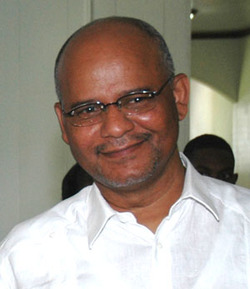– while the world negotiates Arms Trade Treaty
Home Affairs Minister Clement Rohee has lamented that while critical steps are being taken in the international arena to hammer out an Arms Trade Treaty, locally the opposition has voted down a bill that seeks to strengthen this country’s fight against illicit arms.
Negotiators from around 150 countries gathered in New York at the United Nations for a final push to hammer out a binding international treaty to end unregulated conventional arms sales, a pact that a powerful U. S. pro-gun lobby is urging Washington to reject.




